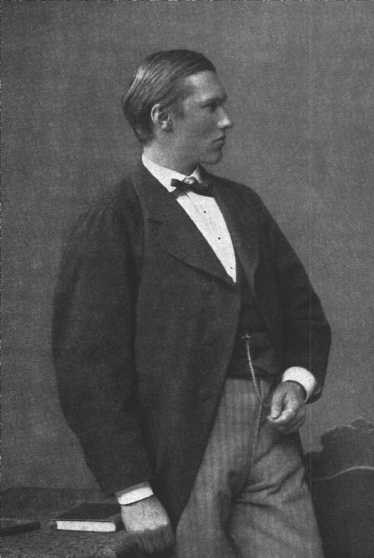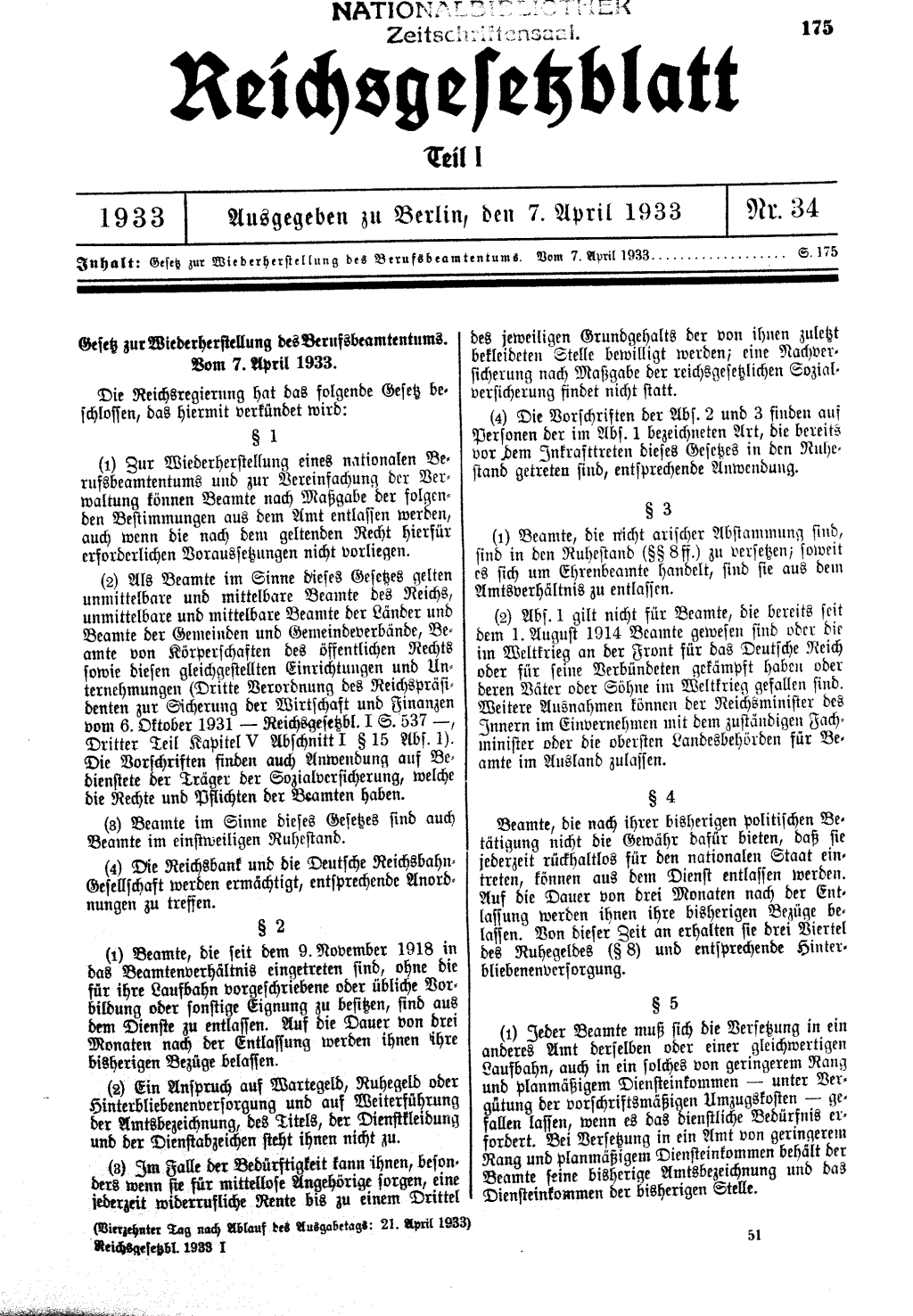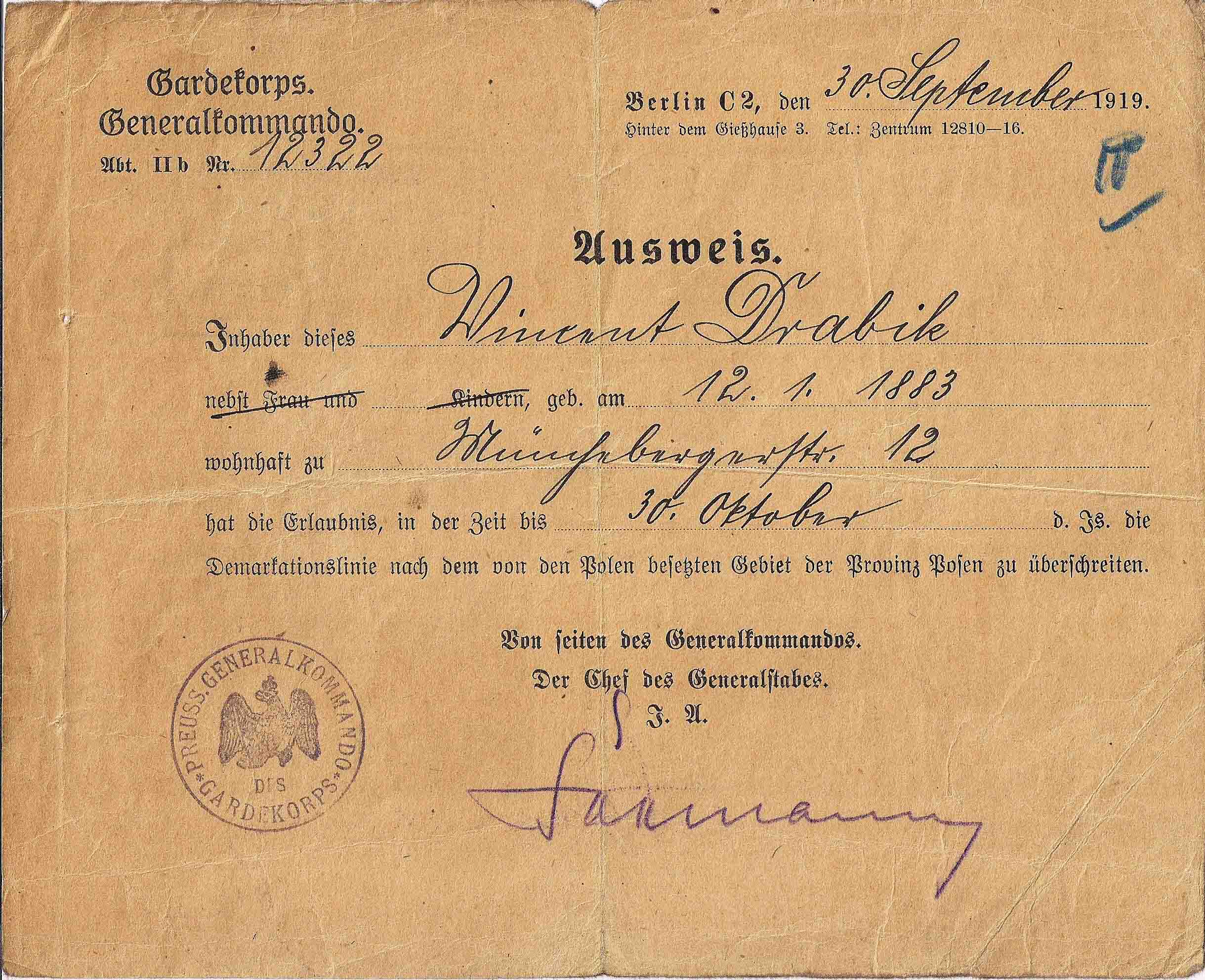|
Wilamowitz
Enno Friedrich Wichard Ulrich von Wilamowitz-Moellendorff (22 December 1848 – 25 September 1931) was a German classical philologist. Wilamowitz, as he is known in scholarly circles, was a renowned authority on Ancient Greece and its literature. Life Youth Wilamowitz-Moellendorff was born in Markowitz (Markowice), a small village near Hohensalza (Inowrocław), in the then Province of Posen (now part of the Kuyavian-Pomeranian Voivodeship), to a Germanized family of distant Polish ancestry. His father, a Prussian Junker, was Arnold Wilamowitz, of Szlachta origin and using the Ogończyk coat of arms, while his mother was Ulrika, née Calbo. The couple settled in a small manor confiscated from a local noble in 1836. The Prussian part of their name, von Moellendorf, was acquired in 1813, when Prussian field marshal Wichard Joachim Heinrich von Möllendorf adopted Ulrich's ancestors. Wilamowitz, a third child, grew up in East Prussia. In 1867 Wilamowitz passed his ''Abitur'' ... [...More Info...] [...Related Items...] OR: [Wikipedia] [Google] [Baidu] |
Gilbert Murray
George Gilbert Aimé Murray (2 January 1866 – 20 May 1957) was an Australian-born British classical scholar and public intellectual, with connections in many spheres. He was an outstanding scholar of the language and culture of Ancient Greece, perhaps the leading authority in the first half of the twentieth century. He is the basis for the character of Adolphus Cusins in his friend George Bernard Shaw's play ''Major Barbara'', and also appears as the chorus figure in Tony Harrison's play '' Fram''. He served as President of the Ethical Union (now Humanists UK) from 1929 to 1930 and was a delegate at the inaugural World Humanist Congress in 1952 which established Humanists International. He was a leader of the League of Nations Society and the League of Nations Union, which promoted the League of Nations in Britain. Early life Murray was born in Sydney, Australia. His father, Sir Terence Aubrey Murray, who died in 1873, had been a Member of the New South Wales Parliam ... [...More Info...] [...Related Items...] OR: [Wikipedia] [Google] [Baidu] |
Hermann Usener
Hermann Karl Usener (23 October 1834 – 21 October 1905) was a German scholar in the fields of philology and comparative religion. Life Hermann Usener was born at Weilburg and educated at its Gymnasium. From 1853 he studied at Heidelberg, Munich, Göttingen and Bonn. In 1858 he had a teaching position at the Joachimsthalschen Gymnasium in Berlin. He was Professor 1861 to 1863 at the University of Bern, then at the University of Greifswald, before becoming professor at the University of Bonn. The ''Bonn School'' of classical philology was led by Usener with Franz Buecheler. Influence Usener was a large-scale thinker who combined scholarly research with theoretical reflection. His research on the ancient world used a comparative method, drawing on a variety of ethnological material for the study of social and religious matters. His theoretical method was phenomenological or hermeneutical, and centered on social psychology and cultural history. He was influential most of ... [...More Info...] [...Related Items...] OR: [Wikipedia] [Google] [Baidu] |
Eduard Fraenkel
Eduard David Mortier Fraenkel FBA () was a German classical scholar who served as the Corpus Christi Professor of Latin at the University of Oxford from 1935 until 1953. Born to a family of assimilated Jews in the German Empire, he studied Classics at the universities of Berlin and Göttingen. In 1934, antisemitic legislation introduced by the Nazi Party forced him to seek refuge in the United Kingdom where he eventually settled at Corpus Christi College. Fraenkel established his academic reputation with the publication of a monograph on the Roman comedian Plautus, ('Plautine Elements in Plautus', 1922). The book was developed from his doctoral thesis and changed the study of Roman comedy by asserting that Plautus was a more innovative playwright than previously thought. In 1950, he published a three-volume commentary on the ''Agamemnon'' by the Greek playwright Aeschylus which has been described by the classicist H. J. Rose as "perhaps the most erudite that any Greek pl ... [...More Info...] [...Related Items...] OR: [Wikipedia] [Google] [Baidu] |
Walther Kranz
Walther Kranz (; 23 November 1884 in Georgsmarienhütte – 18 September 1960 in Bonn) was a German classical philologist (the study of classical antiquity) and historian of philosophy. Biography Kranz studied classical philology at the University of Berlin from 1903 to 1907 with Ulrich von Wilamowitz-Moellendorf, Hermann Diels and Eduard Norden. He received his doctorate in 1910 with Wilamowitz-Moellendorf. For several years he was a teacher at the Berlin-Grunewald experimental school. In 1932, he joined the University of Halle as an honorary professor of classical languages . He took over the publication of ''Die Fragmente der Vorsokratiker'' ('' The Fragments of the Pre-Socratics'') from the 5th edition onwards. After the takeover by the Nazis, he experienced political difficulties because his wife was Jewish. In 1937 he lost his full teaching license, and in 1943 he accepted an invitation from the University of Istanbul and taught there until 1950. From 1950 to 1955 he serv ... [...More Info...] [...Related Items...] OR: [Wikipedia] [Google] [Baidu] |
Paul Friedländer (philologist)
Paul Friedländer (March 21, 1882, Berlin – December 10, 1968, Los Angeles) was a German philologist specializing in classical literature. He studied under Ulrich von Wilamowitz-Moellendorff at the University of Berlin. In 1911 he became a Privatdozent and from 1914 Associate Professor in Berlin, becoming a Professor at Marburg University (1920), University of Halle (1932). In 1935, the Nazi regime forced him to resign and in 1938 he was detained in a concentration camp. After his release, he came to the United States, where he taught first at and Johns Hopkins University (1939), as a lecturer and at UCLA (1940–1945 as a lecturer, 1945– as a professor). Works * ''Herakles: Sagengeschichtliche Untersuchungen.'' Berlin: Weidmann 1907 * ''Johannes von Gaza und Paulus Silentiarius: Kunstbeschreibungen justinianischer Zeit.'' Leipzig : Teubner 1912 (Nachdruck: Hildesheim 1969) * ''Der grosse Alcibiades Band 1/2 '' Bonn: Friedrich Cohen 1921/23 * ''Aufgaben der klassischen Stu ... [...More Info...] [...Related Items...] OR: [Wikipedia] [Google] [Baidu] |
Pere Bosch I Gimpera
Pere Bosch-Gimpera (1891 in Barcelona, Catalonia, Spain – 1974 in Mexico) was a Spanish-born Mexican archaeologist and anthropologist. He went into exile in Mexico, with many other intellectuals, after the Spanish Civil War. He became a Mexican citizen in 1971. Career Although he began studying Law, he changed to Philology, in which he obtained a doctorate in 1911. With the aim of becoming professor of Greek he also obtained a doctorate in History in 1913. From 1911 to 1914 he studied Greek Philology, Prehistory and Ancient History in Berlin, with the aid of a scholarship. Once there, the advice of Wilamowitz-Moellendorf made him change course and he moved from Greek language and literature to prehistoric archaeology. From 1916 to 1939, he was chair of Ancient and Medieval History at the University of Barcelona. At the same time he served as director of the Archaeological Research Service of the “Institut d'Estudis Catalans”. From the publication in 1919 of ''Prehistòri ... [...More Info...] [...Related Items...] OR: [Wikipedia] [Google] [Baidu] |
Germanization
Germanisation, or Germanization, is the spread of the German language, people and culture. It was a central idea of German conservative thought in the 19th and the 20th centuries, when conservatism and ethnic nationalism went hand in hand. In linguistics, Germanisation of non-German languages also occurs when they adopt many German words. Under the policies of states such as the Teutonic Order, Austria, the German Empire and Nazi Germany, non-Germans were often prohibited from using their native language, and had their traditions and culture suppressed in the goal of gradually eliminating foreign cultures, a form of ethnic cleansing. In addition, colonists and settlers were used to upset the population balance. During the Nazi era, Germanisation turned into a policy of genocide against some non-German ethnic groups. Forms Historically there are different forms and degrees of the expansion of the German language and of elements of German culture. There are examples of complete a ... [...More Info...] [...Related Items...] OR: [Wikipedia] [Google] [Baidu] |
Eduard Schwartz
Eduard Schwartz (22 August 1858 – 13 February 1940) was a German classical philologist. Born in Kiel, he studied under Hermann Sauppe in Göttingen, under Hermann Usener and Franz Bücheler in Bonn, under Theodor Mommsen in Berlin and under Ulrich von Wilamowitz-Moellendorff in Greifswald. In 1880 he obtained his doctorate from the University of Bonn.Saint Cyril, Patriarch of Alexandria. With Introduction and Notes by E. Schwartz, 1927 publications References External links Deutsche Wikisource extensive bibliography. {{DEFAULTSORT:Schwartz, Eduard [...More Info...] [...Related Items...] OR: [Wikipedia] [Google] [Baidu] |
Werner Jaeger
Werner Wilhelm Jaeger (30 July 1888 – 19 October 1961) was a German-American classicist. Life Werner Wilhelm Jaeger was born in Lobberich, Rhenish Prussia in the German Empire. He attended school in Lobberich and at the Gymnasium Thomaeum in Kempen. Jaeger studied at the University of Marburg and University of Berlin. He received a Ph.D. from the latter in 1911 for a dissertation on the ''Metaphysics'' of Aristotle. His habilitation was on Nemesios of Emesa in 1914. At only 26 years old, Jaeger was called to the professorial chair in Greek at the University of Basel in Switzerland once held by Friedrich Nietzsche. One year later, he moved to a similar position at Kiel, and in 1921 he returned to Berlin, succeeding to Ulrich von Wilamowitz-Moellendorff. Jaeger remained in Berlin until 1936. That year, he emigrated to the United States because he was unhappy with the rise of Nazism. Jaeger expressed his veiled disapproval in 1937 with ''Humanistische Reden und Vortraege'' ... [...More Info...] [...Related Items...] OR: [Wikipedia] [Google] [Baidu] |
Wolfgang Schadewaldt
Wolfgang Schadewaldt (15 March 1900 in Berlin – 10 November 1974 in Tübingen) was a German classical philologist working mostly in the field of Greek philology and a translator. He also was a professor of University of Tübingen and University of Freiburg. Biography The son of a Berlin doctor, Schadewaldt studied classical philology, archaeology, and German literature at the Friedrich Wilhelm University (now the Humboldt University of Berlin) under Ulrich von Wilamowitz-Moellendorff and Werner Jaeger. After his doctorate (1924) and Habilitation (1927), he was a Docent at the university. In 1928 he was appointed professor at the University of Königsberg. He moved in 1929 to the University of Freiburg, where as Dean in 1933 he was a supporter of the Rectorship of his friend Martin Heidegger and of Nazi policies in higher education. In 1934, however, he resigned as Dean and in the fall moved to the University of Leipzig as the successor to Erich Bethe. Schadewaldt was a co-edit ... [...More Info...] [...Related Items...] OR: [Wikipedia] [Google] [Baidu] |
Hermann Fränkel
Hermann Ferdinand Fränkel (May 7, 1888 – April 8, 1977) was a German American classical scholar. He served as professor of Ancient Greek philology at Stanford University until 1953. Son of professor Max Fränkel and younger brother of Charlotte Fränkel, Fränkel studied classics at Berlin, Bonn and Göttingen. He later lectured at Göttingen, but was denied a professorship after the Machtergreifung. Eluding increasing racial discrimination by the Nazis, Fränkel immigrated to the United States in 1935. He was offered a professorship at Stanford shortly after. He also held guest professorships at University of California, Berkeley and Cornell University. Fränkel made important contributions to Early Greek poetry and philosophy interpretation. His son Hans Fränkel became a noted scholar of Chinese literature. Bibliography * 1921 ''Die homerischen Gleichnisse'', Göttingen: Vandenhoeck & Ruprecht. * 1930 ''Parmenidesstudien'', Berlin: Weidmannsche Buchhandlung. * 1945 ''Ovi ... [...More Info...] [...Related Items...] OR: [Wikipedia] [Google] [Baidu] |
Province Of Posen
The Province of Posen (german: Provinz Posen, pl, Prowincja Poznańska) was a province of the Kingdom of Prussia from 1848 to 1920. Posen was established in 1848 following the Greater Poland Uprising as a successor to the Grand Duchy of Posen, which in turn was annexed by Prussia in 1815 from Napoleon's Duchy of Warsaw. It became part of the German Empire in 1871. After World War I, Posen was briefly part of the Free State of Prussia within Weimar Germany, but was dissolved in 1920 when most of its territory was ceded to the Second Polish Republic by the Treaty of Versailles, and the remaining German territory was later re-organized into Posen-West Prussia in 1922. Posen (present-day Poznań, Poland) was the provincial capital. Geography The land is mostly flat, drained by two major watershed systems; the Noteć (German: ''Netze'') in the north and the Warta (''Warthe'') in the center. Ice Age glaciers left moraine deposits and the land is speckled with hundreds of "finge ... [...More Info...] [...Related Items...] OR: [Wikipedia] [Google] [Baidu] |




